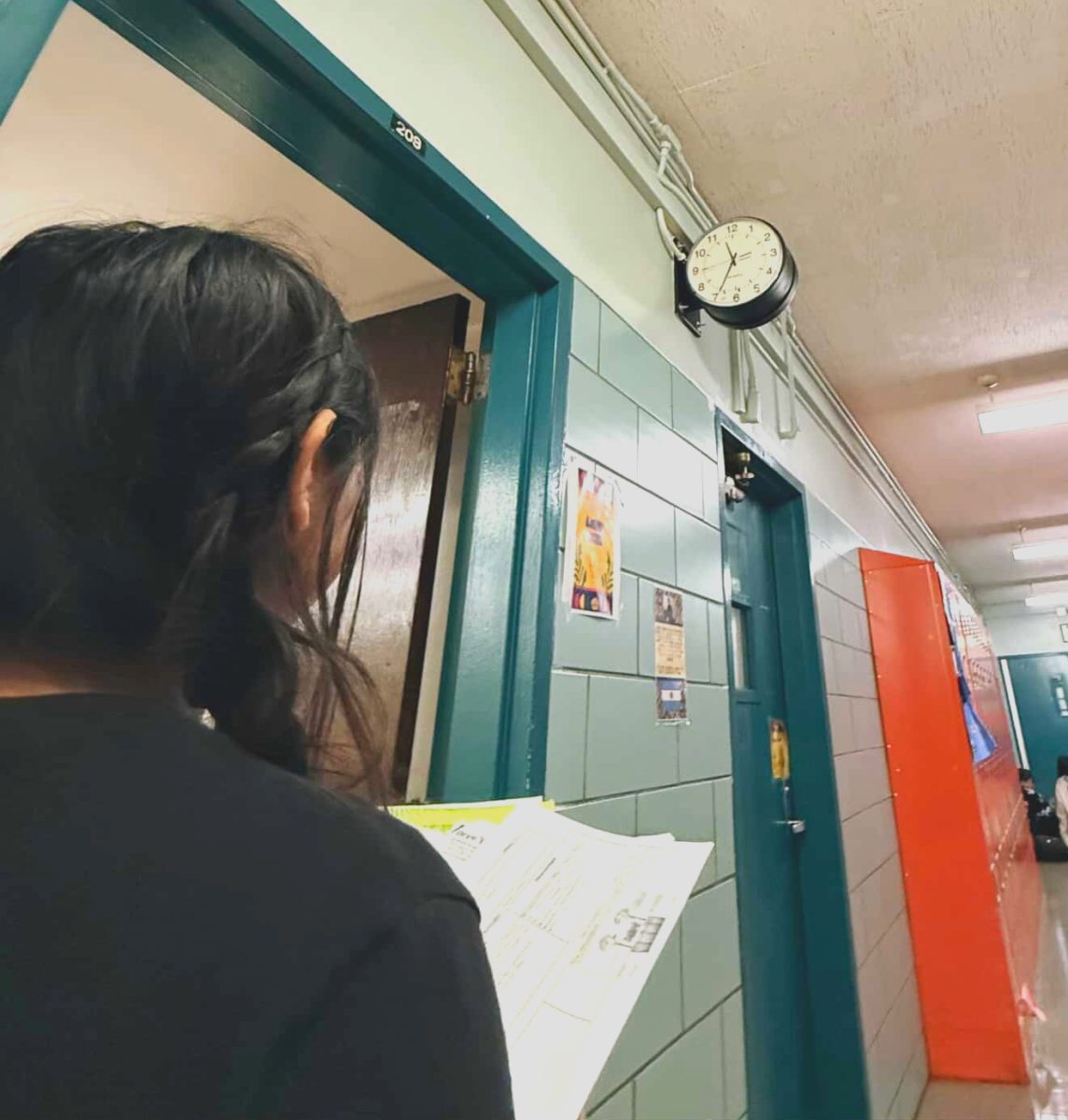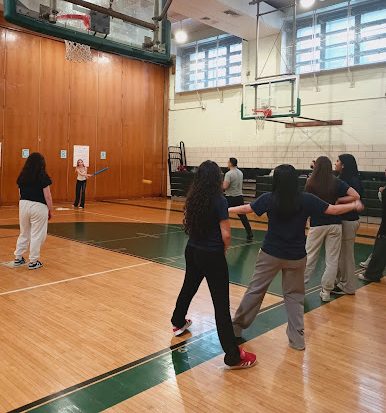On Friday, October 13th indie-rock band “Boygenius” released a four-track EP called “The Rest.” The EP follows the release of Boygenius’s debut album, “The Record,” just six months prior, and coincides with the closing of their massively successful 2023 tour. “The boys,” as fans call them, consist of Phoebe Bridgers, Julien Baker, and Lucy Dacus.
Their official founding was back in 2018, with the trio booking a joint tour and releasing a self-titled EP “boygenius.” Since then, the band has grown its following significantly, landing an album in Billboard’s Top 10, headlining Coachella, and earlier this month, selling out Madison Square Garden. Their clear sapphic expression in combination with their music highlighting themes of female friendship and emotional depictions of womanhood, has generated a cult following of majority queer women.
“The Rest” continues the band’s legacy of musical expression with emotional intimacy and storytelling. The EP acts more like a concept work, telling its own cohesive narrative through all four songs, each complementing the other through common motifs and musical devices.
The opening track, “Black Hole,” delves into the complexities of human relationships and the search for stability, connection, and meaning in a world that often feels chaotic and uncertain, setting the tone of the EP. The first lines depict the act of “sucking down a dart on the back porch,” the speaker details a desire to escape or distract oneself from overwhelming emotions through smoking. Despite this darkness, a glimmer of hope remains in the speaker’s sight of stars being “spat out by what we thought/Was just destroyin’ everything for good,” meaning the stars that had exited from a black hole, a metaphor for the speaker’s hope of escaping seemingly inescapable emotions. The next verse introduces contrasting elements such as white teeth and a black light, highlighting dichotomy within oneself or a relationship. The mention of black holes and a big fight suggests a struggle or conflict that threatens to consume or engulf them. The following line, “You’re a good guy” addresses the speaker’s need for someone who is a source of stability amidst that chaos. The chorus, “good day, good night, good talk, goodbye” captures the fleeting nature of meaningful interactions, conveying the sense that while these moments of connection may be cherished, they are often temporary and eventually lead to parting ways. In the final lines, the speaker describes themselves as wearing a fake smile, suggesting a facade they put on; yearning to hear the other person’s voice, implying a need for authenticity and emotional connection in a world filled with distractions and superficiality.
Unlike “Black Hole” which is a true blend of all three members, track two “Afraid of Heights” focuses mainly on Lucy Dacus and her individual experiences. With themes of fear, courage, mortality, and the complicated dynamics of a relationship, the lyrics depict a conversation between two individuals who have conflicting views on risk-taking and living life to the fullest. In the first verse, the narrator admits to being afraid of heights and expresses how their fear led them to decline a challenge to jump off a cliff, much to the disappointment of their partner. This refusal triggers a deeper reflection on mortality and the desire to seize the present moment rather than worry about an uncertain future. This idea is continued in the second chorus with the line “Cause one man’s dream is another man’s death”, this is an allusion to a Rupert Hines’ quote, “One man’s nightmare is another man’s dream.” The quote is experienced through the lives of the two speakers, both are opposites in their behavior and would probably hate to be in each other’s positions. In the next verse, Dacus sings “I’ve never smoked a cigarette/I wanna live a vibrant life/But I wanna die a boring death” displaying the speaker and their partners struggle with terms of the future and the idea of living a full life, continuing the narrative of internal conflict, shown throughout the EP. The speaker believes that endangering the gift of life for short-term happiness is foolish, while their partner sees the future in entropy and endangers themselves for the adrenaline rush. Overall “Afraid of Heights” explores the dilemma of longing for a meaningful existence while grappling with the limitations and risks imposed by reality.
Track 3, “Voyager,” reinforces the exploration of love, vulnerability, and connection within relationships that “Black Hole” had previously examined. Specifically, verse two focuses on these concepts. The second line, “And sometimes you let me read your mind” alludes to the idea that it’s a rarity for their partner to open up and allow themselves to have emotional intimacy with the speaker. Bridgers then sings “You thought I’d never leave, and I let you believe you were right,” suggesting that she made sacrifices like that: declining deeper emotional connection and experiencing a sense of toxic codependency, convincing herself and her partner that she would never leave, maintaining a somewhat surface level relationship.
The EP concludes with “Powers,” a song that explores Baker’s origins and the power, personal motivation, and confidence one can derive from kinships like that of what she has with Bridgers and Dacus. The first verse references classic comic book hero origin stories, as Baker questions the founding of her powers in life, portrayed as superpowers within the song, “Did I fall into a nuclear reactor?/Crawl out with acid skin or somethin’ worse”. The second verse details Baker’s life before she harnessed her theoretical “powers,” “Thrust into bein’, careenin’ along”. The final verse, specifically the last two lines, “The force of our impact, the fission/The hum of our Contact, the sound of our collisions” serves to reflect Baker’s discovery of her own power, derived through intimate friendship. Explained best in a 2023 interview about “Powers” with Baker, “you look back and realize that you’ve spent your life with people that have become like your family and they’ve been the driving force in what motivates you. It’s small and daily and powerful.”.
“The Rest” proves itself to be an influential work, with its insightful reflections on the complexity of human relationships, emotional intimacy, and fear of the future, teaching us that values are more worth living than dying for, that our feelings of difference and dysfunction can be fonts of power.




























